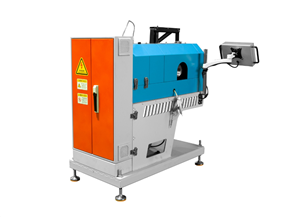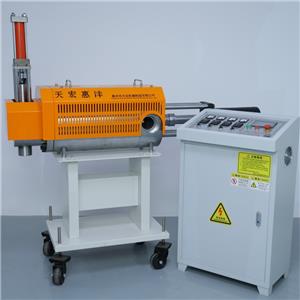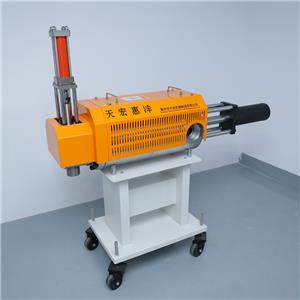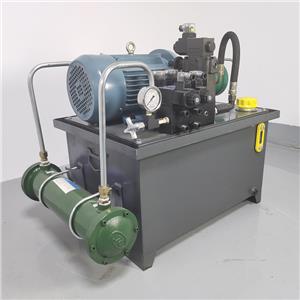2025: Recycled Plastics Industry – Has the Golden Turning Point Arrived?(2)
Policy Tailwinds Propel Progress
In the development of the recycled plastics industry, the role of policies is undoubtedly the most powerful driving force, safeguarding the industry’s vigorous growth.
From a national perspective, the introduction of a series of policies demonstrates high attention and strong support for the recycled plastics industry. In 2021, the Notice on Issuing the 14th Five-Year Plan for Plastic Pollution Control Action – jointly released by the National Development and Reform Commission (NDRC) and the Ministry of Ecology and Environment (MEE) – created a significant stir in the industry like a major milestone. The plan clearly states that efforts should be intensified to promote the recycling and utilization of plastic waste, support the construction of related projects, guide industrial agglomeration in industrial parks, and drive the plastic waste recycling industry to make substantial strides toward scale, standardization, and cleanliness. The launch of this policy has pointed out the development direction for recycled plastics enterprises, encouraging them to increase investment in technological R&D, upgrade production processes, and thereby improve the quality and output of recycled plastics.
On February 23, 2023, the National Development and Reform Commission (NDRC) and multiple other government departments jointly issued the Guiding Opinions on Coordinating Energy Conservation, Carbon Reduction and Recycling Utilization to Accelerate the Renewal and Transformation of Products and Equipment in Key Fields, which further clarifies the important position of the recycled plastics industry in energy conservation, carbon reduction and resource recycling utilization.
The Opinions propose that by 2025, through coordinated promotion of the renewal, transformation and recycling utilization of products and equipment in key fields, the market share of high-efficiency energy-saving products and equipment should be increased, and the recycling volume of major renewable resources such as waste steel, waste non-ferrous metals and waste plastics should reach 450 million tons. The establishment of this target not only reflects the country's firm determination to promote the recycling utilization of renewable resources, but also brings unprecedented development opportunities to the recycled plastics industry.
At the local level, provinces and cities across China have also responded positively to the national call and issued a series of policies supporting the development of the recycled plastics industry in light of their local conditions. Taking Tianjin Municipality as an example, the 14th Five-Year Plan for Ecological and Environmental Protection of Tianjin Municipality clearly states that it will standardize the recycling, utilization and disposal of plastic waste, strengthen the collection and transportation of plastic waste, and promote resource-oriented and energy-oriented utilization. The implementation of this policy will help improve the recycling rate of plastic waste in Tianjin, reduce environmental pollution caused by plastic waste, and at the same time provide more development opportunities for recycled plastics enterprises in Tianjin.
Another Example: Miluo City & the Far-Reaching Impact of Policies
Another example is Miluo City. To guide and support the integration and quality improvement of its local recycled plastics industry, the city issued the Measures for Guiding Period Support and Incentives for the Quality Improvement and Upgrading of Miluo City’s Recycled Plastics Industry. The Measures clearly stipulate that enterprises settling in the quality improvement and upgrading functional zone of the Recycled Plastics Park can enjoy the "three-year exemption and two-year half-reduction" fiscal and tax preferential policy, as well as multiple incentives such as rent subsidies and equipment support. These tangible policy preferences have attracted a large number of recycled plastics enterprises to settle in Miluo, promoted the agglomerated development of the local recycled plastics industry, and formed an industrial scale effect.
The introduction of these policies has had a far-reaching impact on the development of the recycled plastics industry. On one hand, policy guidance and support have promoted the standardized development of the industry. By clarifying industry standards and norms, strengthening supervision over enterprises, and eliminating a number of enterprises with small scales, high pollution, and backward technologies, the industry has been promoted to integrate and upgrade. This has made recycled plastics enterprises pay more attention to environmental protection and technological innovation, and improved the overall competitiveness of the industry.
On the other hand, policy support has provided a favorable development environment and more development opportunities for recycled plastics enterprises. Fiscal and tax preferential policies have reduced the burden on enterprises, increased their profit margins, and allowed enterprises to allocate more funds to technological R&D and equipment renewal. Policies such as rent subsidies and equipment support have reduced enterprises’ operating costs, improved their production efficiency, attracted more social capital to enter the recycled plastics industry, and injected new vitality into the industry’s development.
Technological Innovation: Breaking Through Bottlenecks
Technological innovation is undoubtedly the core driving force for the development of the recycled plastics industry. It can not only break through the bottlenecks of traditional technologies but also open up new paths for the industry's development and inject a steady stream of vitality into it.
In the recycling link, the emergence of intelligent sorting technology is like equipping the industry with a pair of "sharp eyes" (a metaphor for keen identification ability). The traditional manual sorting method is inefficient and prone to errors, while the intelligent sorting system, relying on advanced sensor technology and artificial intelligence algorithms, can quickly and accurately identify different types of plastics. Among them, near-infrared spectroscopy analysis technology can achieve precise identification of plastic types by detecting the chemical structure of plastic molecules; image recognition technology, on the other hand, can perform rapid classification based on the appearance characteristics of plastics, such as color and shape. The application of these technologies has greatly improved the efficiency and accuracy of waste plastic sorting, providing high-quality raw materials for subsequent processing and treatment.
The processing link has also seen the emergence of many innovative technologies, laying a solid foundation for the performance improvement and application expansion of recycled plastics. The "one-step molding" production process developed by Changzhou Jinyong Technology Materials Co., Ltd. can be regarded as a major breakthrough in the industry. This process simplifies the cumbersome traditional modified plastic production process, which originally required two granulation steps, into a single granulation step. It not only significantly reduces energy consumption and production costs but also greatly improves product quality. The successful application of this innovative process not only demonstrates the company’s strength in technological R&D but also provides new ideas and directions for the development of the entire recycled plastics industry.
Another example is the innovation in chemical recycling processes, which provides a new solution to address the limitations of traditional mechanical recycling. Traditional chemical recycling has struggled to achieve large-scale industrial application due to issues such as high energy consumption and low purity. However, the emergence of a new generation of equipment technology is gradually breaking this deadlock. The twin-screw extruder developed by Japan Steel Works (JSW) can continuously decompose plastics through screw shear heat, process various raw materials such as film scraps, and achieve a monomer recovery purity of up to 99%, forming a closed-loop cycle between upstream and downstream. The pyrolysis equipment of Wancheng Technology adopts flexible sealing and ultra-low emission technology to convert mixed waste plastics into pyrolysis oil, gas, and carbon. Its patented technology has covered the globe and been successfully put into production in multiple countries. The application of these innovative technologies has increased chemical recycling efficiency by more than 30% and reduced operating costs by 50%, strongly promoting the industrialization process of chemical recycling technology.




